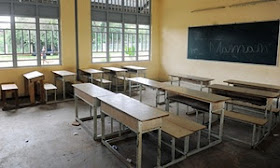In the story, also today in the NYPOST about bigotry at elite high School Brooklyn Technical ("Brooklyn Tech"), students throughout New York City are crying out for recognition of heritage, culture, equality, respect, and finding appropriate strategies to survive. Devora Kaye, the DOE spokesperson, again states her meaningless answer, "We have zero tolerance for any discrimination. We’ll work to provide open forums for the school community to discuss these important issues and will provide any
support that is needed.”
She means, I think, "Stop bothering me."
Lets all get to work on this.
Betsy Combier
betsy.combier@gmail.com
At-risk students improve when they take a
race and ethnicity class – study
Eli Rosenberg, Jan. 14, 2016, The Guardian
education of students who could flunk or might drop out
High school students saw
large improvements in their grades and attendance records when they enrolled in
a class dedicated to exploring race and ethnicity, researchers in California found.
The Stanford University
study analyzed a pilot program of ethnic studies classes at three San Francisco high schools and found that, on average, at-risk ninth-graders
encouraged to enroll in the course performed significantly better than their
peers who didn’t.
Student attendance
increased by 21%, while grade-point averages surged nearly a grade and a half
for those enrolled in the class – striking results, according to the
researchers.
“I was surprised that this particular course
could have such dramatic effects on the academic outcomes of at-risk kids,”
said Thomas S Dee, a professor at Stanford who co-authored the study with
postdoctoral researcher Emily Penner. “If I was reading a newspaper with
results like this, I would read it with incredulity, [but] the results were
very robust.”
The study looked at 1,400
ninth-graders taking part in a pilot program. Students with GPAs of 2.0 or
lower in eighth grade were automatically enrolled in ethnic studies during
their first year of high school. Their results were compared against students
who had similar GPAs who were not automatically enrolled in the ethnic studies
class because their GPAs were slightly over 2.0.
The study
lends some support to advocates who have worked to make ethnic studies classes
a larger part of school curriculums.
Researchers concluded that the results of the study show that
“culturally relevant” teaching is an important part of the education of
students at risk of flunking or dropping out.
“Slight little nudges that help people reframe their experiences
can have a big effect,” Dee said.
Other cities that have instituted ethnic studies offerings in school
districts include Oakland and Los Angeles.
In Portland, Oregon, students recently lobbied for the class to
be offered on a wide basis in public high schools.
But the non-traditional curriculums have been challenged by some
conservatives in places like Arizona, where state legislators passed
legislation banning ethnic studies from schools in 2010.
California’s
governor, Jerry Brown, a Democrat, vetoed a bill to develop a statewide ethnic
studies curriculum in October. In Berkeley, where students have discussed
ethnic stereotypes, analyzed history in racial terms, and talked about their
own experiences and backgrounds in ethnic studies classes for more than 20
years, black student union leaders recently argued that black history should
instead be better integrated into history curricula and that relegating the
subject to a portion of a semester-long class was “insulting.”
Dee said that he hoped the study would help move the discussion
in a more constructive direction.
“One of my hopes is that this research helps shift the debate
away from those heated political outcomes towards student outcomes, about which
everyone cares,” he said. “They may have dramatic effects.”
 |
| Brooklyn Tech |
Students protesting ‘blatant bigotry’ at Brooklyn Tech HS
On a new Facebook page gaining in popularity, Black in Brooklyn
Tech, students describe offensive and insensitive treatment by faculty as well
as classmates.
A movement to end the “blatant bigotry” erupted after several
students, since suspended, allegedly made racist jokes in a private Facebook
chat.
The school’s Black Student Union created the hashtag #blackinbrooklyntech to “share the stories of racial discrimination and harassment we
face” as a minority in the top-rated school, and to open a dialogue, it said in
a statement released to The Post.
The social-media campaign is an embarrassment to the city
Department of Education and the 5,400-student Brooklyn Tech, the largest of
eight elite high schools which base admissions solely on a special test.
The student body is 81 percent Asian, 20 percent white, 8
percent Hispanic and 8 percent black. Mayor de Blasio’s son, Dante, is a recent
graduate.
Among the alleged incidents posted:
·
“Getting sent
anonymous lynching & KKK jokes.”
·
A class clown at the
front of the classroom did “what he seemed to think was a funny impression of a
stereotypical black woman” named “Lakeisha.”
·
Black girls wearing
crop tops and shorts in the summer “get sent to the dean’s office while girls
of other races who are wearing the same things do not.”
·
A guidance counselor
told a student expressing a goal to earn higher grades: “The day you get above
a 90 average I’ll grow an Afro.”
·
An English teacher
instructed a student who skipped the “N” word while reading the novel “Heart of
Darkness” aloud in class to “go back and read that word.”
In response to the uproar, one teacher reportedly told students,
“Race relations aren’t that bad in this school. You could have it a lot worse.”
On Friday, members of the Black Student Union met with principal
Randy Asher and high school superintendent Karen Watts to discuss solutions.
Asher has already begun to “enforce mandatory sensitivity training” for faculty
members, they said.
DOE spokeswoman Devora Kaye said: “We have zero tolerance for
any discrimination. We’ll work to provide open forums for the school community
to discuss these important issues and will provide any support that is needed.”

No comments:
Post a Comment
Please do not use offensive language